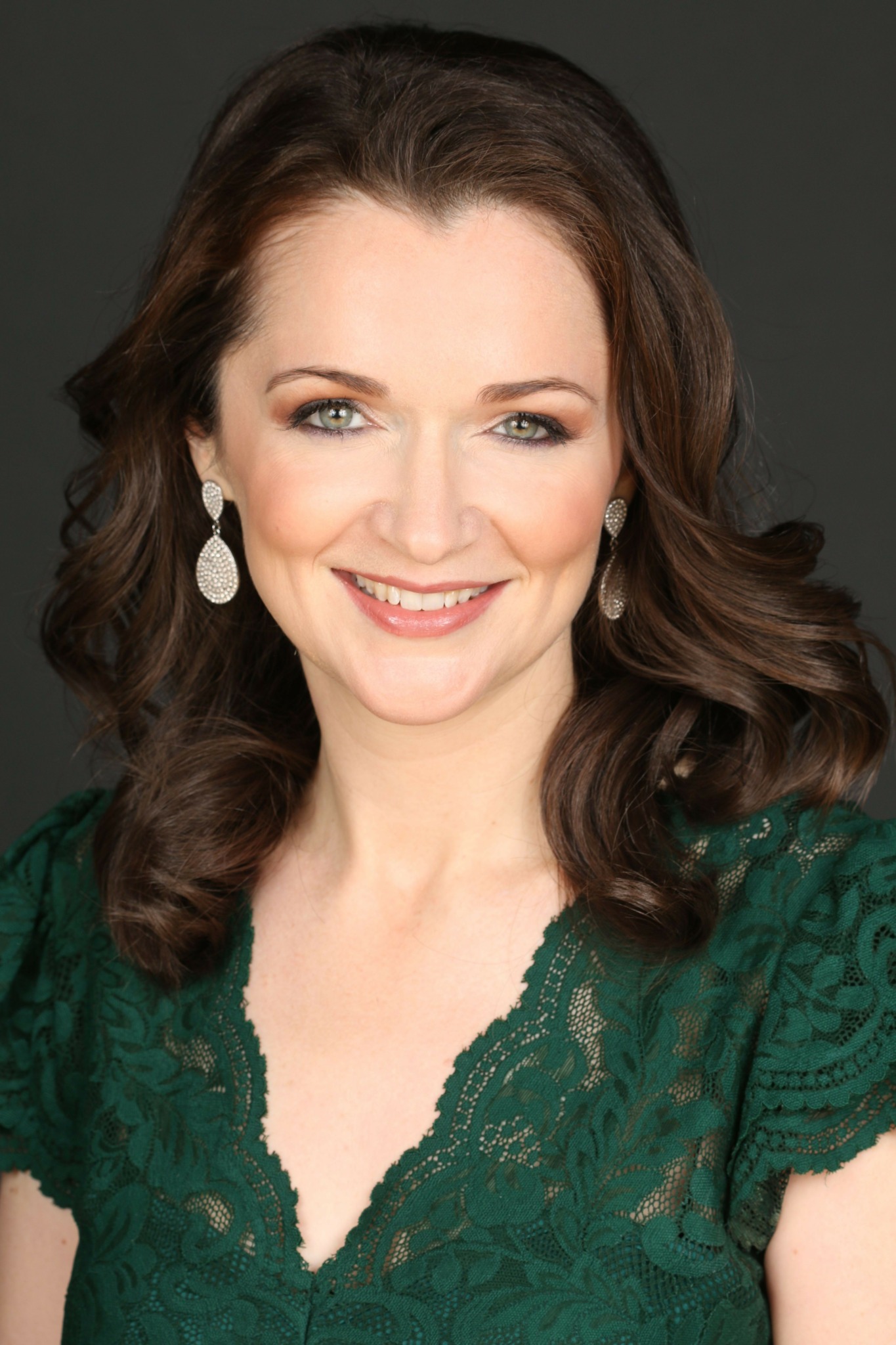We’re excited to introduce you to the always interesting and insightful Carrie Sheffield. We hope you’ll enjoy our conversation with Carrie below.
Carrie, looking forward to hearing all of your stories today. One of the most important things small businesses can do, in our view, is to serve underserved communities that are ignored by giant corporations who often are just creating mass-market, one-size-fits-all solutions. Talk to us about how you serve an underserved community.
Americans are suffering from record depression and suicide. More than 50,000 people died by suicide in the United States in 2023—nearly 17 times the number of people killed in the 9/11 terrorist attacks. This is the highest number ever recorded and the highest rate since 1941 — the aftershocks of the Great Depression. America’s mental health is at a crisis point. We’ve got to change this–and we can.
This is why I founded Healthy Faith in 2024 with our fiscal sponsor, United Charitable, a registered 501c(3) nonprofit organization. Healthy Faith is a media, musical, and educational campaign designed to illuminate the scientifically-documented mental health benefits of engaging in regular faith practice centered around belief in the healing power of God.
Overwhelming scientific evidence connects faith and religious practice with strengthening mental health, lowering depression, and preventing suicide and drug and alcohol overdoses.
For example, the National Bureau of Economic Research reported in January 2023 that states reporting declining religious attendance also saw increasing deaths of despair, and vice versa. A summary of literature reviews appearing in Psychiatric Times reported 68% of longitudinal studies “found that greater religiousness predicted mild symptoms and faster remission at follow-up.” The review also found “of 134 studies that examined the relationships between religious involvement and substance abuse, 90% found less substance abuse among the more religious.”
Yet Harvard School of Public Health and Harvard Medical School researchers found “spiritual needs of patients with serious illness are frequently unaddressed within medical care” and “unaddressed spiritual needs can be associated with poorer patient quality of life.”
Our donors concerned about mental illness underwrite programming nationwide for schools, non-profits, and houses of worship. We have presented to various mental health-related non-profits, as well as students at Yale University, Harvard University, Pepperdine University, University of Austin, Liberty University, Palm Beach Atlantic University, churches in Brooklyn, Manhattan, Charleston S.C., Harrisburg area, Chicago area, and San Francisco, and more.
Health Faith brings messages to heal mental health in schools, churches, colleges, and other community groups. Healthy Faith empowers audiences to heal from mental illness and build “Beloved Community,” a vision for an empowered, loving, abundant, and vibrant society.
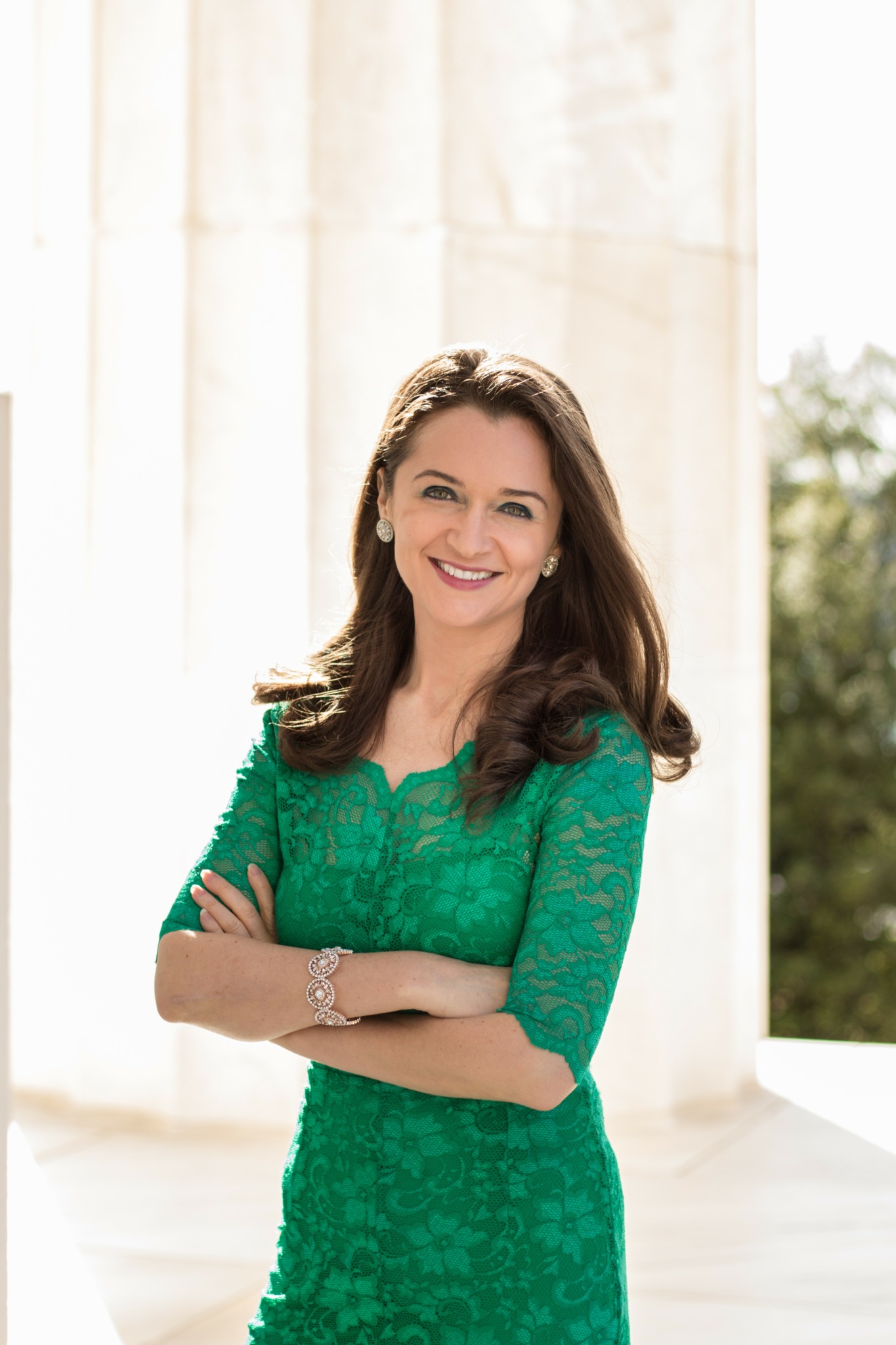

Great, appreciate you sharing that with us. Before we ask you to share more of your insights, can you take a moment to introduce yourself and how you got to where you are today to our readers.
Carrie Sheffield is a columnist & broadcaster in Washington, D.C. and founder of Healthy Faith, a charity supporting the connection between faith and mental health. She is author of the bestselling book Motorhome Prophecies: A Journey of Healing and Forgiveness published by Hachette Book Group.
A Senior Policy Analyst at Independent Women’s Forum, Carrie directed the Center for the American Worker and the Center for American Values at America First Policy Institute. A former White House reporter, Carrie earned a master’s in public policy from Harvard University, concentrating in business policy. She earned a B.A. with honors in communications at Brigham Young University and completed a Fulbright fellowship in Berlin. Carrie managed municipal credit risk at Goldman Sachs and served as lead analyst on a $5 billion portfolio of healthcare bonds at Moody’s Ratings. She later researched for American Enterprise Institute economics scholar Edward Conard and served as Warren Brookes Journalism Fellow at Competitive Enterprise Institute. She’s repeatedly testified before the U.S. House on economic policy, and while serving as executive director for Generation Opportunity, she spoke at the U.S. Senate alongside key senators in favor of landmark tax reforms passed by Congress in 2017.
Carrie covered Congress for The Hill newspaper and was a founding reporter at POLITICO. She won a Robert Novak Journalism Fellowship and contributed on political economy at Forbes, wrote editorials for The Washington Times under Tony Blankley and advised the digital Millennial women’s site Bustle.com. Carrie has published in The Wall Street Journal, TIME, USA Today, CNN Opinion, The New York Times, The Washington Post, CNBC, National Review, The D.C. Examiner, Newsweek, HuffPost, and Daily Caller.
Carrie’s joined as a live broadcast guest on media networks including Fox News, Newsmax TV, Fox Business Network, MSNBC, CNN, PBS, and BBC. Carrie provided analysis for Fox News’ first 2016 GOP presidential primary debate. She co-moderated a U.S. House congressional debate in Harlem and debated healthcare policy with Tom Brokaw on MSNBC under host Chuck Todd the night of the 2016 Vice Presidential debate. Carrie fought for life during CNN’s on-air coverage the night SCOTUS overturned Roe v. Wade. She analyzed the 2018 White House Correspondents’ Dinner as a CNN on-air guest, encouraged 2018 midterm voter turnout for ABC’s “Good Morning America,” and live-tweeted for CNN Opinion on Election Day 2018. She analyzed the 2014 Election Day results on MSNBC, interviewed House Speaker Paul Ryan on the mainstage of the 2016 Conservative Political Action Conference airing live on CSPAN and defended the rights of Afghan women on The Ben Shapiro Show. On the lighter side, she sparred on HBO’s “Real Time with Bill Maher” and got a ribbing from John Oliver’s “Last Week Tonight,” and Trevor Noah of “The Daily Show.”
In foreign affairs, Carrie reported on the 25th anniversary of perestroika in Moscow, North-South Korean relations from Seoul and the DMZ, and covered the Beijing Olympics in China. Carrie was a correspondent for The Jerusalem Post covering the Israeli parliament and covered Egyptian political reforms in Cairo–including an interview at the Muslim Brotherhood headquarters. She also wrote on geopolitical positioning and freedom of speech in Qatar and Japanese political, economic and national security reforms.
As the founder of Bold TV, a digital media network featuring newsmakers across politics, business and lifestyle news, Carrie’s work has been recognized in profiles by The Wall Street Journal, Forbes, Entrepreneur Magazine, Harvard University, Sirius XM, The American Conservative and Metropolitan Magazine.
Carrie is a member of the Harvard Christian Alumni Society and the Forgiveness and Education Working Group at Harvard’s Human Flourishing Program. A 2018 winner of the William F. Buckley Awards by America’s Future Foundation, Carrie is listed in Maverick PAC’s “Future 40” 2019 class of influential young conservatives and named a Most Inspiring New Yorker by Bumble, a social connection app with more than 55 million global users. An avid runner who completed the Marine Corps Marathon, she is a three-time winner of the National Press Club 5K race among female members of The National Press Club. She is an award-winning violinist who sings and plays classical piano for events nationwide. She loves traveling, and prior to turning age 30 visited every continent–including Antarctica.
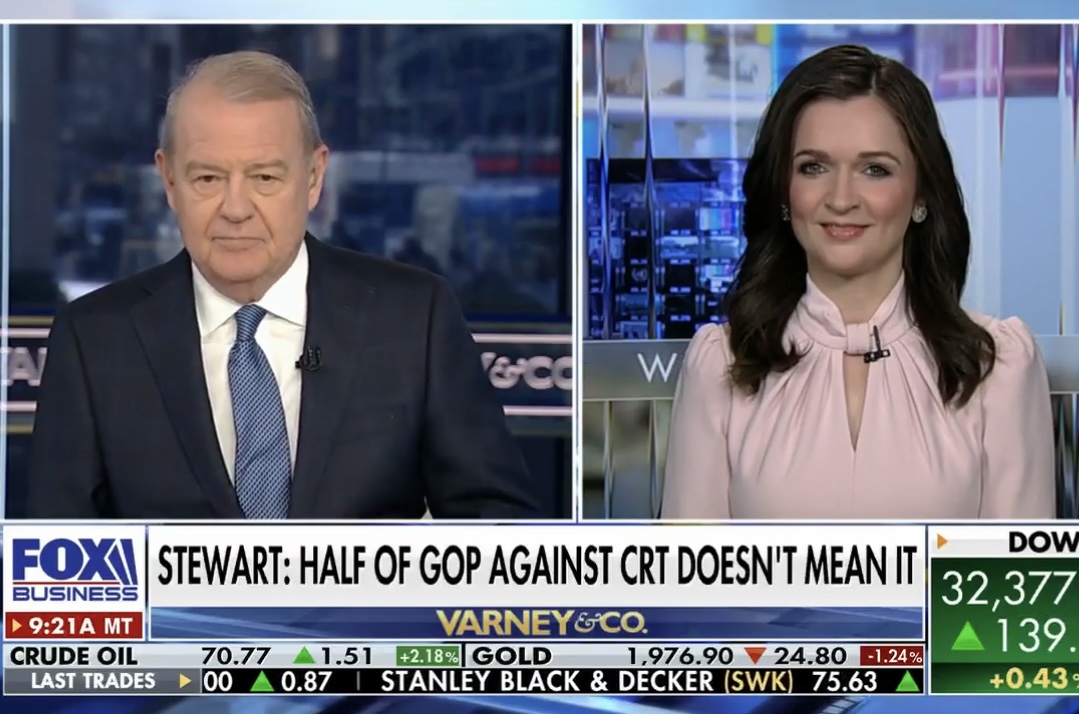

Can you share a story from your journey that illustrates your resilience?
In our age of soaring rates of despair, powerful scientific evidence suggests faith in God brings healing. I have experienced this firsthand.
As I write in my memoir, Motorhome Prophecies, I grew up one of seven biological siblings with a violent, mentally ill, street-musician father. An offshoot Mormon cult leader claiming a prophetic role that would lead to president of the United States, my dad said Satan “reassigned” lesser demons to personally torment our family.
My dad was excommunicated from the official LDS Church, which I believe is, overall, a positive organization with impactful humanitarian work and strong community values.
We lived a transient life, skirting authorities by constantly moving. Besides various houses, we lived in motorhomes, tents, mobile homes and sheds. One of my five brothers was born in a tent while our family lived in the public campground woods of Greenbelt Park, Maryland. I took my ACT exam when all 10 of us lived in a shed in the Ozarks with no running water.
In our dysfunctional and itinerant lifestyle, we parked our motorhome at truck stops and Walmart parking lots while performing classical music on streets and distributing religious pamphlets. Throughout my childhood, I attended 17 public schools and homeschool amidst poverty and welfare. Two brothers eventually developed schizophrenia. One of those brothers sexually assaulted me and the other accused me of trying to seduce him for sex.
Eventually, I had enough and told my dad I wanted out. He pronounced “in the name of Jesus” that I would be raped and murdered if I left. When I departed, he said my blood changed, and that I was no longer his daughter. He banished me, claiming I was satanic and would corrupt my siblings, since I was first to leave but fifth in birth order.
Declared legally estranged from my parents to obtain Pell Grants for college, I scraped by with scholarships, janitorial work and jobs at Taco Bell and Subway.
After numerous unexpected turns, including a full tuition scholarship to Harvard for a master’s degree, a successful media career and financial analysis work at Wall Street giants Goldman Sachs and Moody’s Investors Service, I became a Protestant Christian in December 2017, following nearly 12 years as a bitter agnostic.
Now a recovered agnostic, I have personally experienced faith’s role in healing my mental health. Before embracing a healthier, balanced view of faith and religious practice, I visited hospitals nine times (sometimes in multiple overnight stays) for depression, fibromyalgia, suicidal ideation and PTSD.
Sadly, three of my siblings attempted suicide, and I struggled with severe anxiety before returning to faith and eventually forgiving my dad for the severe abuse he wrought on our family through his toxic behaviors.
The biggest hurdle I needed to overcome was comprehending the difference between human religious abuse and healthy faith in God. Blaming God for manmade abuse is like blaming Beethoven for a bad concert. Blame the musicians, not the composer.
I recently described in “Christianity Today” the longer path that led me to my conversion, but the short version is that it happened after I tried everything else. I tried putting career, relationships, travel, work and other good things first, as my ultimate sources of meaning — but they all kept failing me.
My struggles and those of my family don’t exist in a vacuum. The US Centers for Disease Control and Prevention (CDC) late last year released provisional data showing that nearly 50,000 people died by suicide in the United States in 2022. This nearly 3% increase from 2021 is the highest number ever recorded and the highest rate since 1941 — during the aftershocks of the Great Depression. Loneliness is so prevalent that it’s being described as an epidemic among adults; according to the CDC, adolescent mental health, especially among teen girls, is at a crisis point.
Knowing that faith and science can go hand in hand to promote better mental health has been life changing for me. Being part of faith communities and participating in transformative prayer practices has had profound effects on my brain. Dr. Curt Thompson, a renowned Christian psychiatrist with expertise in neuroscience and spirituality, wrote a book, “Anatomy of the Soul: Surprising Connections Between Neuroscience and Spiritual Practices That Can Transform Your Life and Relationships,” that changed my thinking about my brain.
Thompson describes the neuroplasticity of the brain, the ability for us to create new neural pathways that underlie our thought patterns. He illuminates what the Bible says about loving ourselves and others in a healthy manner and contrasts that with the toxic inner scripts that arise from depression, personality disorders and other mental illnesses. Thompson’s work shows that with conscious effort, patients can rewrite the underlying code of our subconsciousness.
It was deeply moving and hopeful to learn about this neuroplasticity, proving indeed that I could change my brain’s wiring. And, with God’s help, I did. I’ve benefited from women’s Bible studies that helped me identify negative self-talk. Intensive prayer ministries (including with Christian Union, an organization serving Ivy League students and alumni) allowed me to pray with others to redeem specific traumas in my past. I’m grateful for a brilliant Jewish therapist who integrates spirituality into our conversations. I’ve been mentored by remarkable spiritual leaders, including Pastor A. R. Bernard, a renowned Brooklyn pastor and adviser to presidents, who tells his flock: “The quality of your thinking determines the quality of your life.” (Bernard endorsed and is interviewed in my recent book.)
While I struggle like everyone does to some extent, since embracing faith in my mental health treatment, I gradually stabilized and today experience what the Bible calls “the peace of God, which surpasses all understanding.”
During America’s growing mental health crisis of record suicides and depression rates, I think that’s partially why Gen Z is seeing a faith revival. Young people are reporting to researchers that Covid-19 isolation and ensuing mental illness leaves them more open to God than they were before the pandemic. I believe it’s because they are intuitively drawn to the life force that is far above any broken human institution like government or corporations. And while yes, religion too is one of those broken human institutions, at its best, it still connects us with God.
My prayer is that more people suffering from mental illness seek out healers who embrace the power of faith to save lives and heal minds.
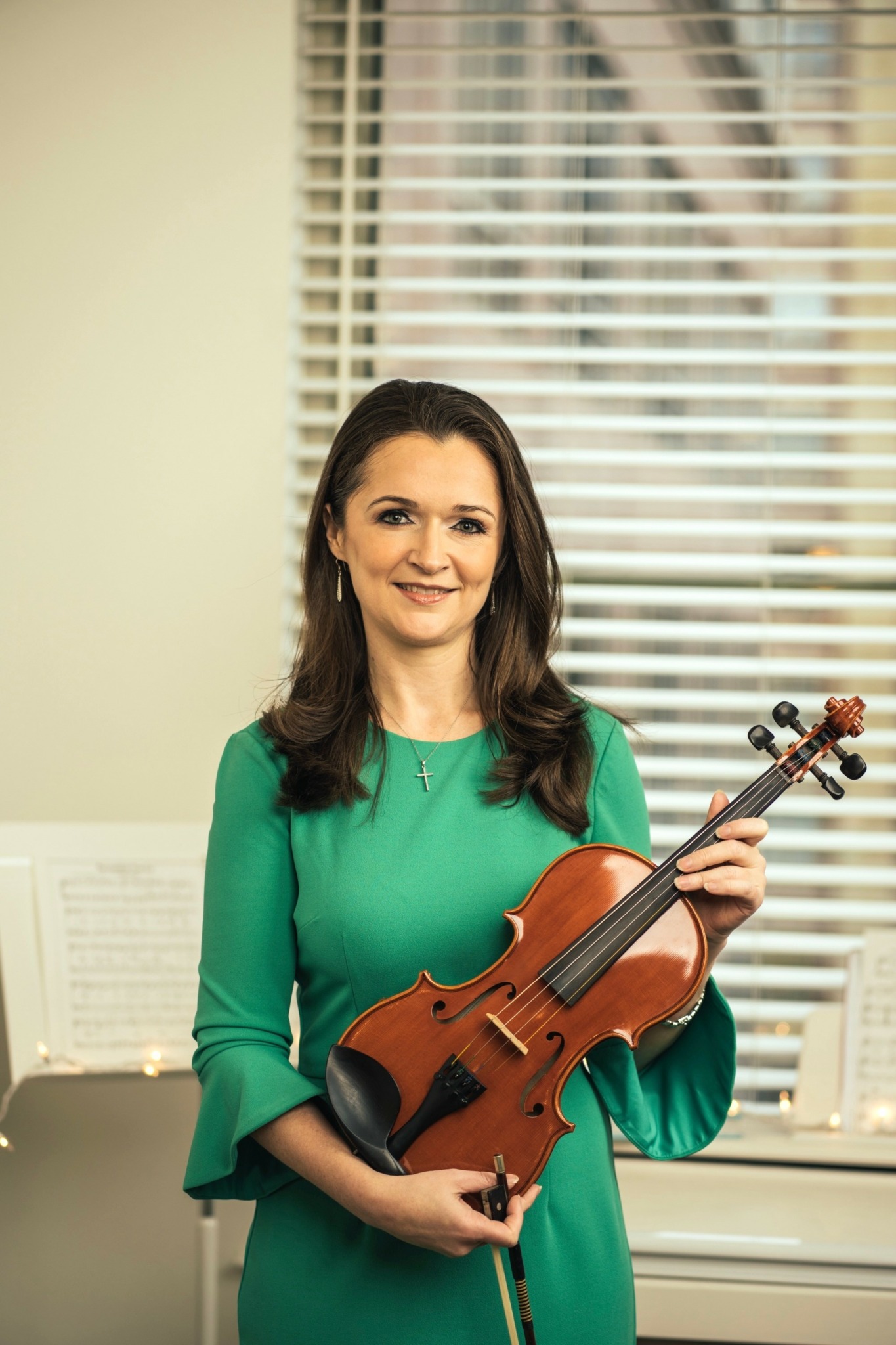

Are there any books, videos or other content that you feel have meaningfully impacted your thinking?
I am empowered by the principles of Stoic philosophy, which I wrote about for Forbes: https://www.forbes.com/sites/carriesheffield/2013/12/01/want-an-unconquerable-mind-try-stoic-philosophy/
1. Immediately Recognize What Is Out Of Your Control.
2. Fear, Anger And Other Emotions Are Personal Choices, Regardless Of Outer Circumstances.
3. Live A Life Centered On Principles, Not Wealth, Awards, Approval of Others or Power.
4. People Who Misbehave Do Not Deserve An Emotional Reaction From You.
5. Meditate Daily To Revive Your Commitment To A Principle-Centered Life
Contact Info:
- Website: All my social links are here: https://carriesheffield.com/contact/

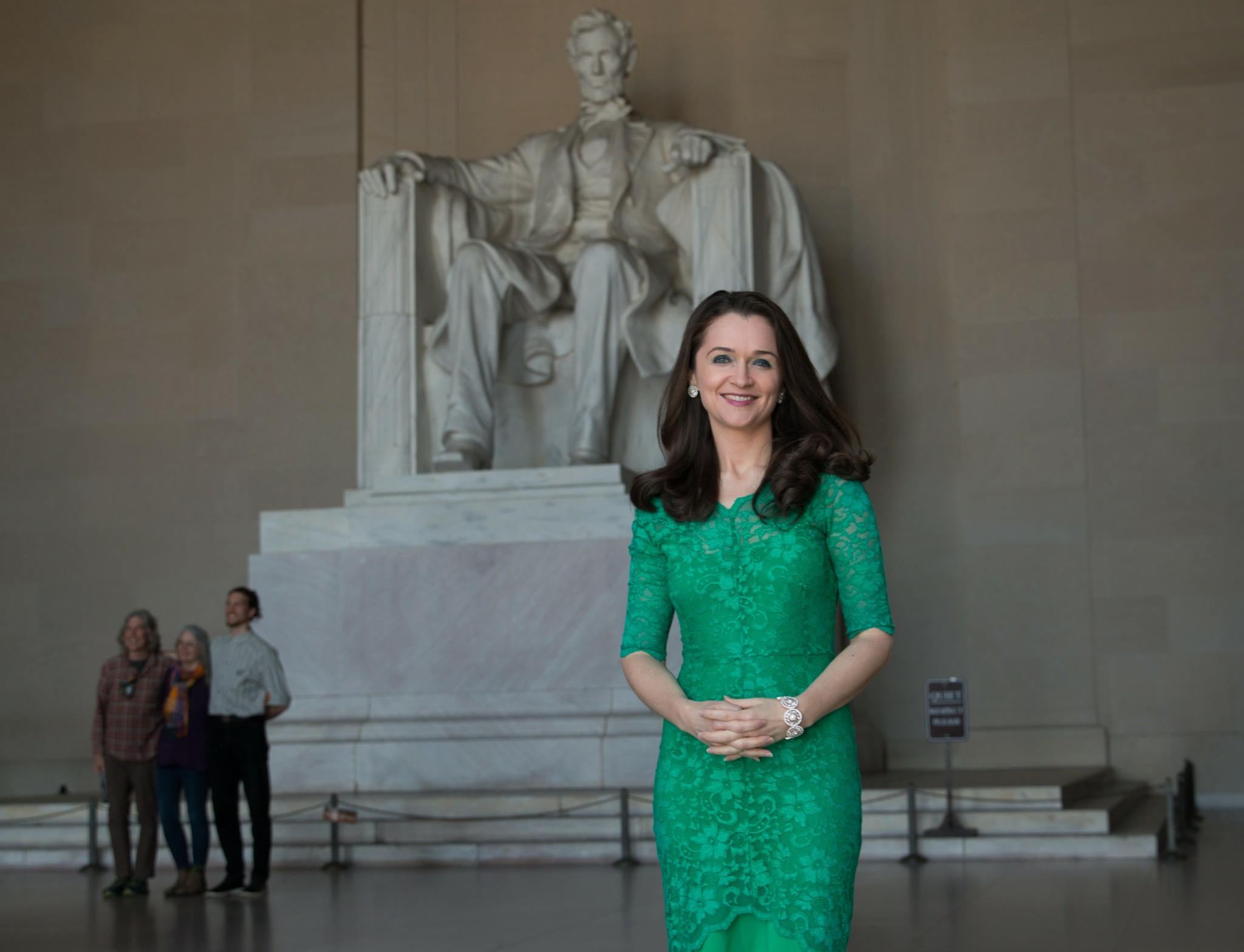
Image Credits
Headshot by Barry Morgenstein


